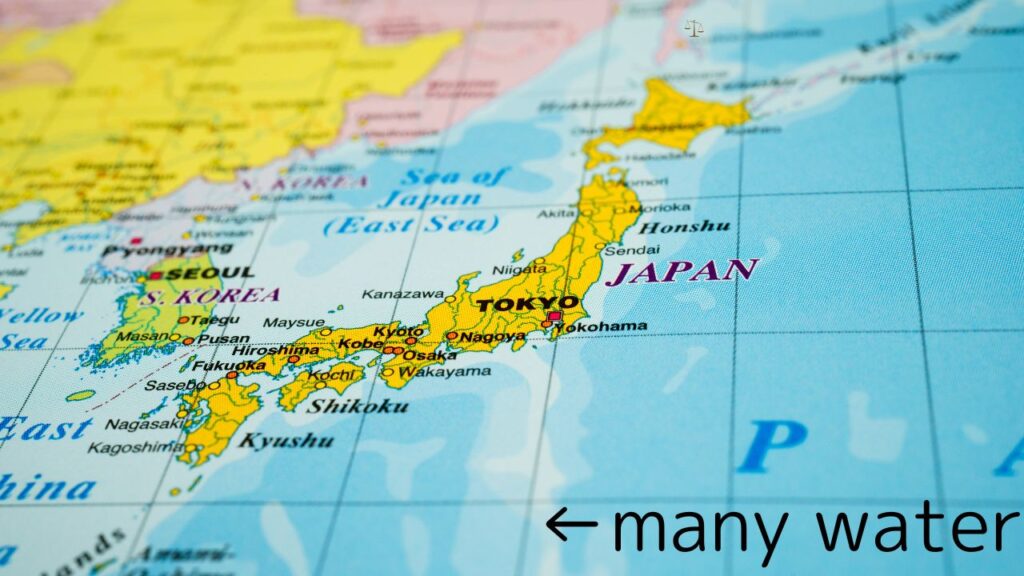Are you curious about how to say “water” in Japanese? Water plays a central role in Japanese culture, language, and daily life. This guide will help you explore the Japanese word for “water,” its various uses, cultural significance, and related expressions.
How Do You Say “Water” in Japanese?
Understanding how to say “water” in Japanese is essential for navigating daily life and cultural experiences in Japan. Let’s explore the most common ways to express “water.”
The most common and straightforward way to say “water” in Japanese is みず (Mizu). This term is widely used in everyday conversation to refer to drinking water or water in its natural form. However, the kanji for “water” (水) has two pronunciations: みず (Mizu) and すい (Sui).
Mizu (みず): Everyday Water
“Mizu” is the standard reading used in daily life. Examples include:
- 水をください (Mizu o kudasai): “Please give me water.”
- 冷たい水 (Tsumetai mizu): “Cold water.”
- 水を飲む (Mizu o nomu): “Drink water.”
Sui (すい): Formal and Compound Words
The pronunciation “Sui” is primarily used in compound words and formal contexts. It rarely appears on its own. For example:
- 水道 (Suidou): “Water supply” or “Waterworks.”
- 水泳 (Suiei): “Swimming.”
- 炭酸水 (Tansan-sui): “Carbonated water.”
To avoid confusion, it’s helpful to learn “Sui” as part of specific compound words rather than trying to use it independently.
Regional and Cultural Context of Water in Japan
Water holds significant cultural and practical value in Japan. This section explores the role of water in language and society.
Japan is a Water-Rich Country

Japan, as an island nation surrounded by the sea, is rich in water resources. Its abundant rainfall and mountainous terrain contribute to numerous rivers, lakes, and access to fresh water. This natural wealth of water shapes everyday life and is a crucial element of the country’s agriculture, culture, and history.
Many Idioms Are Related to Water
Japanese has many idioms and phrases involving water, highlighting its importance. Examples include:
- 水に流す (Mizu ni nagasu): “Let bygones be bygones.”
- 水の泡 (Mizu no awa): “All in vain.”
- 水商売 (Mizu shoubai): “Nightlife business.”
How to Identify Kanji Related to Water
In Japanese, kanji characters with the “sanzui” radical (氵) are often related to water. This radical is a key indicator of water-related meanings. Examples include:
- 海 (Umi): “Ocean”
- 池 (Ike): “Pond”
- 酒 (Sake): “Alcohol”
Recognizing “sanzui” in kanji can help learners identify water-related terms more easily.
Practical Applications of \”Water\” in Japanese
Learning how to use the word “water” in practical situations will help you communicate effectively in Japan. Here are some common scenarios.
Ordering Water at a Restaurant
When dining in Japan, water is typically served free of charge. To request water, you can say:
- 水をください (Mizu o kudasai): “Please give me water.”
- お冷やをください (Ohiya o kudasai): “Please give me cold water.”
Talking About Different Types of Water
Japan offers various types of water, each with specific terms:
- 炭酸水 (Tansan-sui): “Carbonated water.”
- 温水 (Onsui): “Warm water.”
- 冷水 (Reisui): “Cold water.”
Common Idioms and Phrases
Understanding water-related idioms can enrich your Japanese vocabulary and cultural insight. Examples include:
- 水に流す (Mizu ni nagasu): “Let bygones be bygones.”
- 水臭い (Mizu kusai): “Being reserved or distant.”
- 水曜日(Sui-youbi):”Wednesday” ※Mercury=水星(Suisei)
FAQs
This section addresses common questions about water in Japan, from ordering in restaurants to understanding cultural nuances.
Is water free at Japanese restaurants?
Yes, most Japanese restaurants provide water free of charge. However, some upscale establishments or cafes may offer bottled water for a fee instead of tap water.
What is the word for “hot water” in Japanese?
The word for “hot water” in Japanese is お湯 (Oyu). It is commonly used in contexts like preparing tea or bathing.
Can I just say “water” in Japan and be understood?
Yes, most Japanese people will understand “water” when spoken by an English speaker, especially in contexts like restaurants or cafes. However, using the Japanese word “Mizu” (水) shows effort and respect for the language, which is often appreciated.
Conclusion
Understanding how to say “water” in Japanese and its various cultural and practical contexts can enrich your experience in Japan. By learning terms like “Mizu” and “Sui,” and exploring water-related idioms, you can deepen both your linguistic and cultural understanding of Japan.








